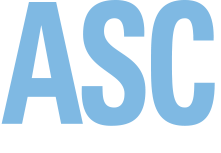2024-26 Sea Grant research projects get underway
By MOIRA HARRINGTON
For Jennifer Hauxwell, Sea Grant’s director of research, two opposing things are true: it’s good and unfortunate there is a wealth of freshwater research talent in Wisconsin.
As of Feb. 1, when 11 new research projects in the 2024-26 cycle officially kicked off, it’s the good part that wins out in this equation. There remains the slightest hint of regret, though, that so many high-quality and almost-sure-to-be-impactful projects remained on the table because the more than $2.8 million for two years of funding simply didn’t stretch far enough to include them in the portfolio.
“On Wisconsin’s campuses, there are numerous innovative researchers,” Hauxwell said. “We released a call for Sea Grant funding in fall 2022. From then until now, I’ve been lucky to have interacted with creative investigators with creative ideas to address coastal and Great Lakes opportunities and challenges. I’m of course pleased we could fund who we have and, naturally, dismayed that we couldn’t support others.”
What is in the portfolio touches on themes that guide Sea Grant’s work. Those are fostering healthy coastal ecosystems, building and sustaining a strong fishery and aquaculture industry, and ensuring resilient communities and economies. Layered into this year’s projects were also special callouts to address emerging contaminants like per- and polyfluoroalkyl substances (PFAS); building a more diverse, equitable and just society; and addressing the urgency of climate change.
Researchers from three Universities of Wisconsin campuses — La Crosse, Madison and Milwaukee — are involved in the work. Other participating organizations are the Wisconsin Historical Society, Great Lakes Indian Fish and Wildlife Commission, Mole Lake Sokaogon Chippewa Community, town of Campbell and Wisconsin departments of Health Services and Natural Resources. Along the way, it is anticipated that the projects will provide training and employment for more than 25 students.
Hauxwell also noted it’s rewarding to see that more than half of the projects are being led by investigators who have not previously secured Sea Grant research dollars. It’s a welcome development to bring in fresh talent.



